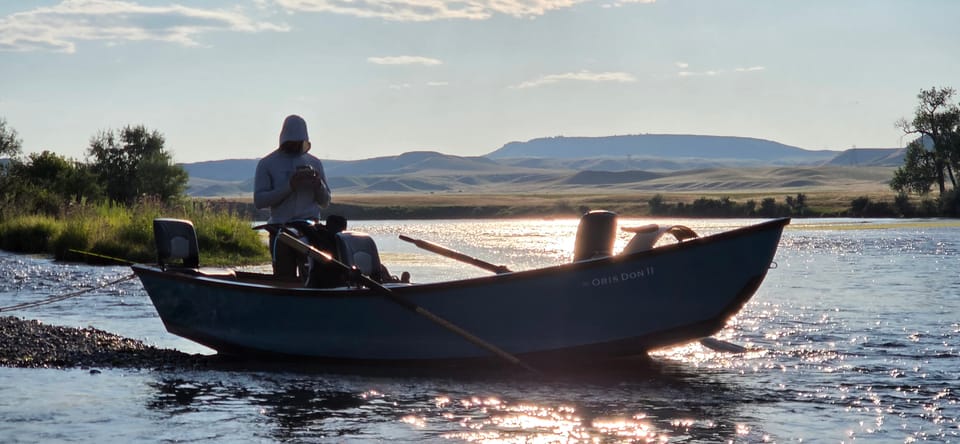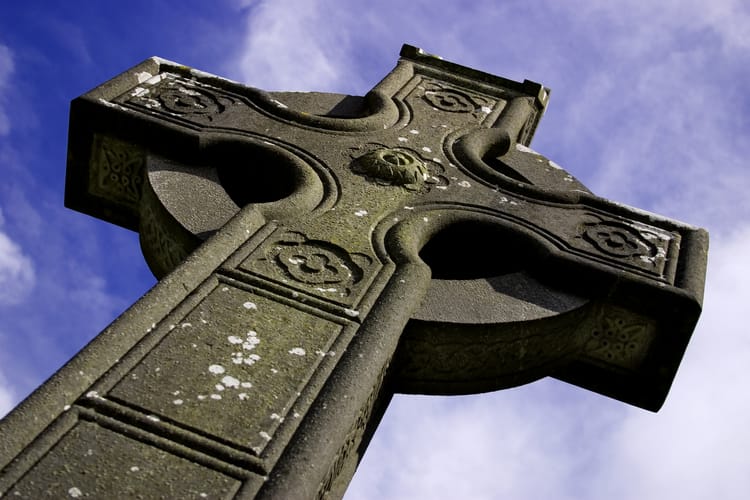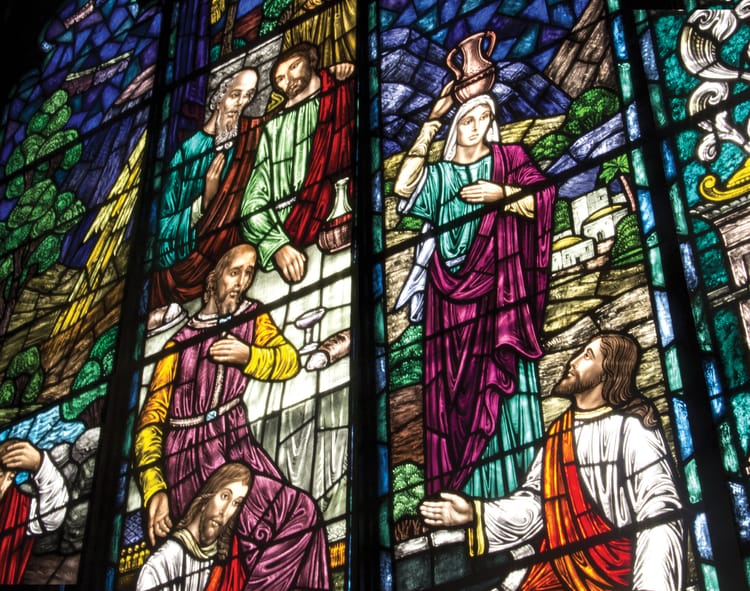What Are Miracles For?

It's that time of year again, where we load up our truck and head to Montana for some much needed time on the water. This past week I got to fish with Malachi. I also re-read my journals from the past year. More on that in a moment.
First, I'd invite you to read this terrific post by Alivia Duran, a young woman in our church, facing a terrifying medical diagnosis:

Go on, read it. I can wait.
I find Alivia's words timely, because they remind me of something I journaled about recently. Her post struck a chord for me; maybe it will for you as well.
Here is Alivia's question (from her post): Is this a miracle? Or just a happy coincidence?
And here is mine (from my journal, before I knew of Alivia's plight or praying): What are miracles for?
Now, those of us who identify as 'Christian' in any historical sense of the word must believe (at least theoretically) in a God who hears prayers and is capable of intervening supernaturally in our lives. If the Father can raise Jesus from the dead, and if Jesus says the Spirit will eventually raise us from the dead, too, then surely something like cancer is no real showstopper for this Triune God of Resurrection. This kind of thing ought to be right up his alley.
Consequently, it is certainly in keeping with 1st century Christianity to ask for (and expect) divine assistance with our physical afflictions.
James actually commands saints who are sick to pray to God for healing (James 5:14-15); Jesus tells his disciples to believe that the Father will answer our prayers when we ask in faith (Mark 11:24). So kudos to those who actually read these passages and take their instructions to heart.
I think God wants us to pray for healing.
Over the years, however, I've noticed a good many American Christians – and too many Presbyterians – are nervous or uncomfortable with such prayers. We might believe in divine intervention (theoretically), but we don't really expect God to do this sort of thing. Not in our lives at least. Is this based on some subconscious attempt to avoid disappointment? Do we invest our true hope in science and doctors? Perhaps we just doubt that God would ever do something like this for us?
Whatever the case, if we're being honest, many Christians (myself included) often invest little emotional energy in praying such prayers, because we have little expectation or hope that God will actually answer such prayers.
This doesn't say much for our faith (cf. 1 Corinthians 15:34).
But it does return us to our question: If God wants us to pray for healing, and he is capable of miraculously answering our prayers, what are miracles for? What is the purpose of divine intervention?
Is it so that we can simply go back to life as normal, whatever it was we were doing before? We should ask this about all our praying (whether for the miraculous or the mundane).
Let's say you have a problem with pornography, or credit cards, or just making bad decisions. Maybe you cheated, or got caught in a lie, or maybe you had one too many drinks (again!) and drove even though you knew you shouldn't, but right now you just desperately need to make it home safely... God, help me!
Or, perhaps you just want God to look our for your kids, your marriage, your church (all good things!)... Lord, bless!
Whatever the case – whether vice, plight, or legitimate need – at some point, somewhere along the way, most of us cry out to God for help. We humans (believing or not) inevitably pray.
And sometimes – we shouldn't underestimate the miraculous nature of any divine response – it feels like the heavens open and God actually responds. For now, don't worry about all those occasions when God seems silent; instead, just notice that for most of us, there are actually some instances where (surprisingly!) God does seem to answer, or at the very least, we get a break and things go our way.
We cry out. We are helped.
In moments like these, God feels most real to us. I imagine he feels particularly real to Alivia right now.
And it is precisely in these moments – when God feels most real to me, supernaturally near and present – that I have found it helpful to consider why God might be getting involved: What is he trying to say to me? To show me?
My point is simply this: it is well and good to ask God for divine help. However, on the occasions when God does pull back the curtain (in my experience they tend to be rare) – when he shows his hand, when he reveals his power, when he presses on us with his presence – the purpose of such intervention is almost certainly not so that we can simply get back to the status quo or whatever it was that we were doing before our current crisis.
On the contrary, I think God uses moments like these to wake us up, to open our eyes to new realities, to show us his presence, to get us moving in new directions. I believe God wants to increase our trust in Jesus, to make us hungry and thirsty for a different kind of life – a world that's all about his kingdom and our calling.
After all, says Paul: "The righteous shall live by faith" (Romans 1:17) – not just be justified by it.
The purpose of the Christian faith is not primarily to save us from some future predicament (after death); rather, it's to move us into a whole new kind of relationship with God (here and now). No wonder the first Christians found this "news" about Jesus to be so compelling; it literally offered them a new way of moving through this life, regardless of their circumstances.
God listens. Hears. He responds to our please for help. And then he acts.
I believe God's action in our lives always invites us to move in new directions, to know him like a friend, to walk with him like a partner, to enter into this great work of redemption. Such movement is never easy – it will almost always involve risk and uncertainty. And it will absolutely require you to exercise more faith than you think you have.
So when we pray for healing (or any kind of divine assistance), I think that's what we should really be praying for (the prayer within the prayer).
Not just to be cured from cancer or saved from our bad decisions (certainly that!). But I think we should also be praying that the God who broke into this world in the time of Jesus will break into our present lives right now, that he would start moving us in new directions, so we can start learning to trust more, to hear better, to be braver, to step out in faith to follow this Jesus, now.
This feels particularly poignant at my place in life.
Last Sunday I visited our old church in Billings – this was the first church where Marilyn and I (back in our late twenties) felt like God met us as a couple; this was the church that encouraged us to pursue seminary in Philadelphia, and then supported us in Missoula with our first church plant. We have fond memories of this church. We have known some of these folks for almost 30 years.
Imagine my surprise when I looked around the sanctuary, seeing those familiar faces. "My goodness," I thought. "You people have gotten old!"
But then I look in the mirror and realize we have gotten old too. I turned 56 at the end of May. Marilyn is 59.
Marilyn's father died this past week; Marvin was 85 and miserable. They were not close when he passed, but there was no pastor available, so it fell on her to lead the service (yesterday) back in Pennsylvania. She has lost two parents now, and a little brother. Only her sister remains.
My own father fell off a ladder and broke his neck earlier this summer. He also suffered a stroke back in January. It seems like his life has been full of near misses (miracles?). He is recovering well; still, he is 78. Clarice, my stepmother, was hospitalized seven or eight times this past year; she is 82.
My assistant Kerri is 42. She called yesterday to tell me her dad has just been diagnosed with lung cancer.
We should pray for all of these people. But what exactly are we praying for?
We are entering that stage in life where our grandparents are all gone and our parents will soon follow. Here in the U.S., the average life expectancy for a male is 77 years. Realistically, I am twenty-plus years behind them. That means that if I am fortunate, I have 10-15 years left to be truly productive in my work. I find myself thinking about how to spend that time wisely, how to finish well.
I do not consider any of this morbid. On the contrary, I find it realistic, sobering, and helpful. "Teach us to number our days, O Lord" says the Psalmist, "that we might get a heart of wisdom" (Psalm 90:12).
That brings us back to this summer.
As I re-read these old journals that I've been filling up for the past sixteen years, I am seeing things that are starting to feel like wisdom – lessons learned (usually the hard way), insights won (almost always at great cost). I find it fascinating to see places where my thinking has changed, but also where it has solidified. I also see developments – both in practices of the American church as a whole, and in the narratives I hear American Christians embracing – that concern me greatly.
Now more than ever, I believe the church in America is adrift.
Most Christians I meet seem as lost, materialistic, and consumeristic as their non-Christian friends. Presbyterians are no better off (more on that in another post). In my experience, 21st century American Christians to be missing gospel power that Paul preached and the 1st century Christians embodied.
If nothing changes, the American church is in trouble (in much the same way that those churches in the first few chapters of Revelation were in trouble – Jesus' true church is always doing just fine, thank you very much, but it is both possible and likely for local churches to find themselves in real and present danger).
Yet throughout both Scripture and history, the solution almost always involves individual Christians – ordinary folks like you and me! – recognizing the plight and starting to prayerfully seek to rectify it.
That's what we've spent the past 20 years working on.
Now I'd like to start writing about it a little more intentionally. Here's who I see myself speaking to:
- seekers who are curious to learn more about how the Bible and 1st century Christians would answer life's big questions today.
- followers who want to learn how to read and pray and hear God's voice and find a renewed sense of purpose and calling in their work and neighborhoods.
- church planters who are sensing that we are entering a post-Christendom era: the Christendom ways of doing church doesn't seem to be working like they used to – what seeds have we been sowing (that might be producing the fruit we are now observing); what can we do differently (while still being faithful to the Jesus of the Bible).
If we are serious about revitalizing our faith and churches, here are some elements we need to discuss:
- pastors learning to be bivocational (in a way that is sustainable)...
- ordinary Christians learning to read, pray, hear God's voice, and respond to the Holy Spirit (with a life of faith, sacrifice, and service)...
- churches rethinking their worship (in a way that is still rich and deep, yet doesn't require staff, buildings or big budgets, and makes you want to invite non-Christian friends to visit)...
- all of us changing our giving (so the vast majority of tithes go to mercy / shalom outside our church. We need to get serious about utilizing what God has given us to supporting single moms, the working poor, and immigrants who live within 5 miles of us, whether they attend our church or not...)
Of course there's more than just this, but I think we make a serious mistake if we start by assuming ideas like these are too radical (and thereby, off the table).
All too often our prayers for God's help in revitalizing our churches feels like our prayers for the miraculous – either we aren't asking, or we simply want God to intervene in a way that allows us to get back to whatever we were doing before.
For the American church, I think (and hope) that ship has sailed.
I have no idea if any of my current readers will be interested in such topics. But this is where God has been teaching me the most. These are the things I'm interested in writing about. Here's how you (perhaps) can help.
- First, if you still read these emails, you can always hit reply and let me know what parts you find interesting and helpful (or dry and dull). What has God been teaching you over the past decade(s)? What are you wrestling with most?
- Second, I probably need to work on growing this audience. I suck at self-promotion, and I have zero interest in being an "influencer" (I hate social media). So for now, if something I write "lands" with you, please share it with others who might find it interesting too. Feedback is always helpful. Feel free to offer it.
- Third, we'd really appreciate your prayers – not just for me, for Marilyn, for All Souls, for Lazarus, but especially for Jesus and his Kingdom (Matthew 6:10). You can pray for blessing (we certainly need it). But what we'd appreciate most is fruitfulness. At the end of the day, what I'd really like is to be useful to the Master (2 Timothy 2:21) over this next 10-15 years. And that will be my prayer for you as well.
There's always more that could be said, but this letter is long enough already. So, until next time...
Grace and peace,
Christian
ps – I have just 4 more days on the river, and we've seen nary a rise on dry flies; pray that the PMD's show up soon.








Member discussion